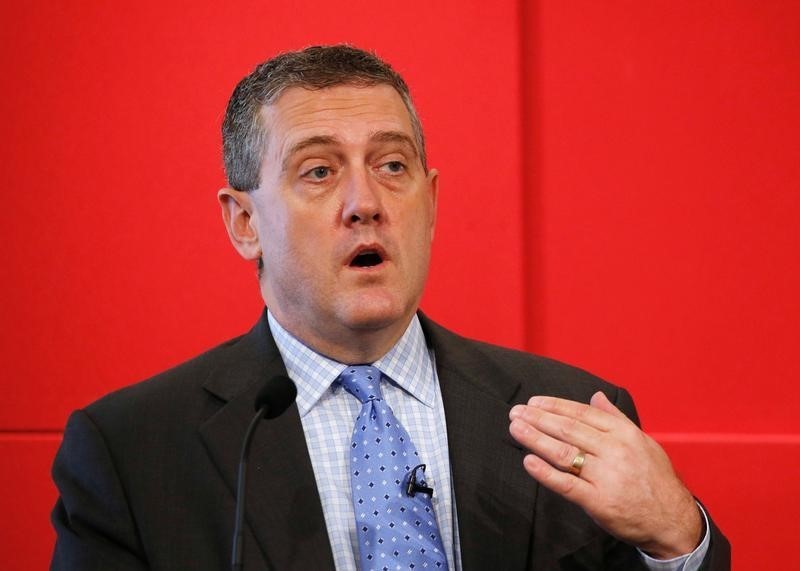By Howard Schneider
ST. LOUIS (Reuters) - The Federal Reserve should be in no rush to raise U.S. interest rates despite a surge in June hiring, St. Louis Fed President James Bullard said on Tuesday, sticking with his view that the central bank may need only a single rate hike for years to come.
Indeed he said he expects trend job creation to slow in coming months, a normal development as the economy approaches full employment that is consistent with his view the U.S. is locked in a low growth, low inflation and low unemployment rut for the foreseeable future.
"You probably can't add 200,000 jobs a month anymore," Bullard said. "I would expect continued slowing in the pace of jobs growth, and would regard that as a normal development for this stage of the business cycle.”
Bullard, a voting member of the U.S. central bank's rate-setting committee, recently shifted his view of monetary policy, concluding that the United States had entered a low growth "regime." The appropriate target interest rate for the Fed, he said, is also low, requiring only a single rate rise unless some unexpected shock moved the economy to a better or worse state.
When they meet later this month Fed officials will evaluate a run of data, including a job increase of 287,000 in June, showing the U.S. recovery on track.
A rate increase at that meeting is considered unlikely, with officials like Governor Daniel Tarullo saying they are unconvinced inflation is moving adequately toward the central bank's 2 percent target.
Under his new view, Bullard argued that the Fed's rate outlook does not need to change until growth and inflation have shifted to the upside.
"The policy rate would likely remain essentially flat over the forecast horizon," of two and a half years, he said in remarks at the St. Louis Fed. He sees the appropriate federal funds rate as 0.63 percent, about a quarter point above where it is now.
Policymakers expect one more rate hike this year, but investors have been dubious whether even that will happen. Once encouraging of faster increases, Bullard has the dimmest view of the central bank's need to "normalize" policy.

Bullard said his outlook "is a better description of what the committee is actually doing," than the forecasts central bankers make every quarter. "The committee has moved once in 18 months," since it halted a bond-buying stimulus program, he said.